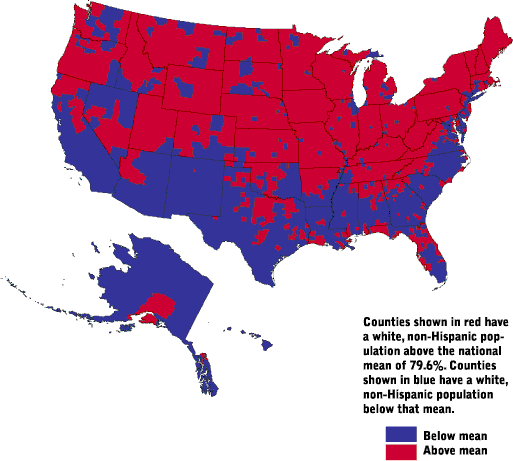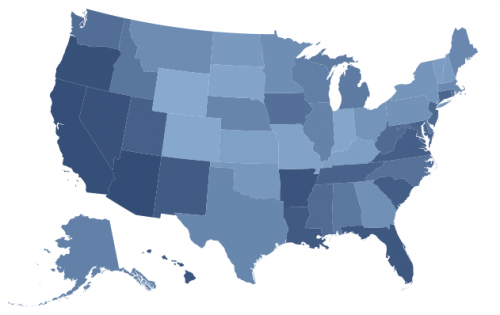The other day, Kevin Drum wrote a post wondering why we had so few doctors per capital in the United States and observing, reasonably, that this might be one reason to explain why physician compensation rates were higher here than in other countries.
He and Matt Yglesisus argued that this smaller number of doctors and higher compensation rates were due to a physician-operated cartel. This is a proposition I and most libertarians would agree with. In fact I, and many others apparently, wrote to him saying yes there is a cartel, but ironically it owed its existence to government interventionism in the economy and health care. In a true free market, such a cartel would only have value so long as it added value to consumers.
Drum seems to have missed the point. In this post, he reacts to themany commenters who said that government power was at the heart of the cartel by saying no, it's not the government because doctors control the nuts and bolts decisions of the cartel. Look! Doctors are in all the key positions in the key organizations that control the cartel!
Well, no sh*t. Of course they are. Just as lawyers occupy all the key slots in the ABA. But neither the ABA nor these doctors cartels would have nearly the power that they have if it were not for government laws that give them that power (e.g. giving the ABA and AMA monopoly power over licensing and school credentialing). I had never heard of the RUC before, which apparently controls internship slots, but its ability to exercise this control seems pretty tied to the billions in government money of which it controls the distribution.
Let's get out of medicine for a second. I am sure Best Buy wishes it had some mechanism to control new entrants into its business. Theoretically (and it may have even done this) it could form the Association of Bricks and Mortar Electronics Retailers (ABMER). It could even stake a position that it did not think consumers should shop at upstarts who are not ABMER members. Take that Amazon! Of course, without any particular value proposition to do so, consumers are likely to ignore the ABMER and go buy at Amazon.com anyway.
Such cartel schemes are tried all the time, and generally fail (the one exception I wonder about is the Visa/Mastercard consortium, but that is for another post). Anyway, the only way the ABMER would really work is if some sort of government licensing law were passed that required anyone selling consumer electronics to be ABMER members. And my guess is that the ABMER might not invite Amazon.com to join. All of a sudden, Amazon is out of the electronics business. Or maybe it just gets forced to deliver all its product through Best Buy stores, for a fee of course.
Crazy stupid, huh? The government would never write licensing laws to protect a small group of incumbent retailers, right? Well, tell that to Elon Musk. Tesla has been trying for years to bring its cars to consumers in innovative ways, but have time and again run up against state auto dealership laws that effectively force all cars to be sold through the state dealer cartel. Or you can talk to California wine growers, who have tried for years to sell directly to consumers in other states but get forced into selling through the state liquor wholesaler cartels.
All these cartels are controlled and manned by the industry, but they are enforced -- they are given their teeth -- by the government.
Here are a few off-the-top-of-my-head examples of cartel actions in the medical field admittedly initiated and supported and administered by doctors, that are enforced by state and federal law:
- Certificate of need laws prevent hospitals from expanding or adding new equipment without government permission. The boards in this process are usually stacked with the most powerful local hospitals, who use the law to prevent competition and keep prices high. This is a great example where Drum could say that the decisions are essentially being made by hospitals. Yes they are, but they only have the power to do so because the government that grants them this licensing power over competitive capacity. Without this government backing, new hospitals would just laugh at them.
- Government licensing laws let the AMA effectively write the criteria for licencing doctors, which are kept really stringent to keep the supply low. Even if I wanted to only put in stitches all day to busted up kids, I would still have to go through 8 years of medical school and residency. Drum and Yglesias focus on the the number of medical schools and residencies. I do not know if these are an issue or not. But what clearly is an issue is the fact that one has to endure 8 expensive years or more just to be able to hand out birth control or stitch up a skinned knee.
- Government licensing laws help doctors fight a constant rearguard action against nurse practitioners and other less expensively trained folks who could easily do half or more of what doctors do today.
- The FDA and prescription drug law not only helps pharma companies keep profits up, but also increases business to doctors as people have to have a prescription for certain drugs they could easily buy on their own (e.g birth control pills, antibiotics).
- The government limits immigration and thus labor mobility, reducing the ability of doctors from other countries to move here.
I am sure there are more.
There is no denying that in the middle of every industry cartel are insiders who are maneuvering to increase the rents of the incumbent players. In fact, I am sure that every industry has participants who dream about getting off the competitive treadmill and creating a nice industry cartel, and would be the first to sign up. But none of these dreams are ever going to happen unless they are enabled by the coercive power of government.
Of course, the consistent answer is, well, we just have the wrong guys running things. If we had the right guys, it would work great. But this kind of co-option always happens. Look at taxis and liquor license holders and the entire banking sector. Five years ago I would bet that progressives thought they finally had that right guy in the administration. And look what has happened. Banking cronyism is as strong as ever. Obama's signature health legislation is full of crony giveaways. In 6 months the health insurers are going to be running the entire PPACA infrastructure to their own benefit.
update: This post is verging on the "is cronyism capitalism's fault" argument. Rather than go into that again, it is here.
Update #2: Related
Arkansas orthodontist Ben Burris was hauled in front of the state dental board in September after dentists in northeast Arkansas complained that he was offering dental cleanings to the general public in his Braces by Burris orthodontics clinics. The price for dental cleanings was $98 for an adult and $68 for a child, which Burris has said is about half of what dentists in northeast Arkansas typically charge.
Burris said most of the patients who need cleanings don’t have a dentist, but are checked by one of the three orthodontists in his clinic. Also, Burris said he offered the service because it was good for his business and good for the public. Some of his competitors “have gone absolutely ballistic†over the price and complained to the board, Burris said.
MP: Of course, the Arkansas dental cartel has no basis to complain directly about the low prices for dental cleaning at Braces by Burris clinics, so they are instead complaining that the clinic’s low-cost teeth cleaning services violate the states Dental Practice Act, which prohibits orthodontists and other specialists from practicing “outside their specialty.â€



